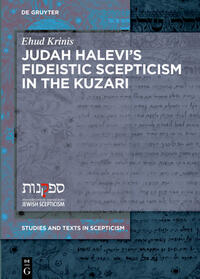
As scepticism has rarely been studied in the context of the Arabic culture and its Judeo-Arabic sub-culture, it is small wonder that sceptical motifs of Judah Halevi’s classic theological The Kuzari (written ca. 1140) received very little scholarly attention so far. Thus, the present study seeks to shed light on Halevi’s wrestling with the dogmatic-rationalistic trends of his period from an angle of this much less studied perspective. As a by-product, this study is a contribution to the mainly uncultivated field of traces of scepticism in the Arabic culture.